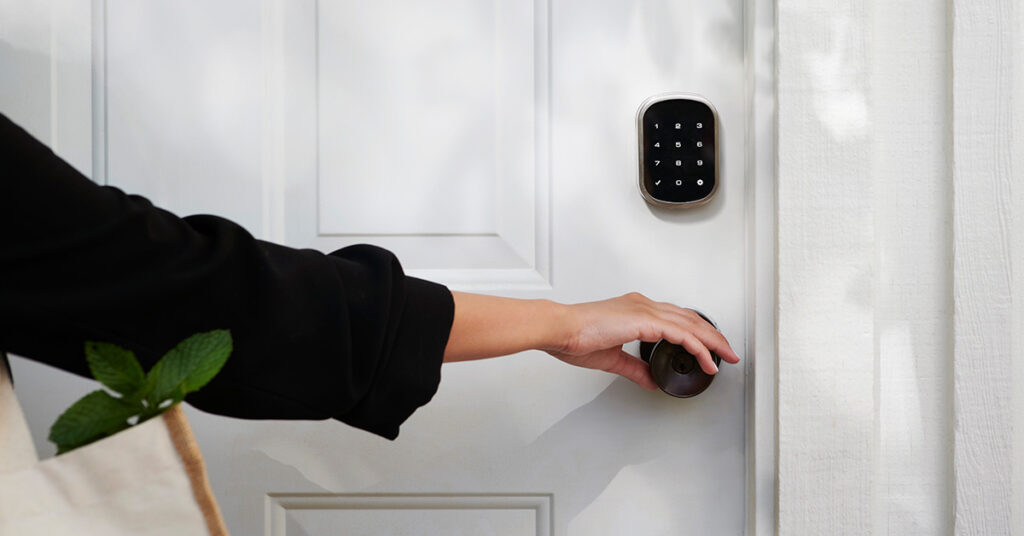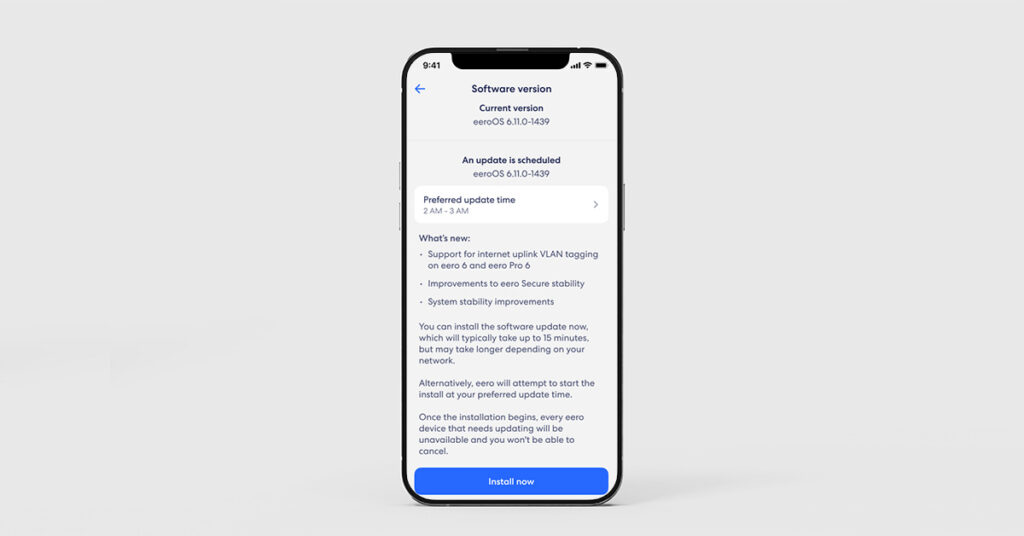Imagine someone walking through a neighborhood trying to decide which house to break into. One house has a padlocked door, security cameras, and an alarm system in place, while the house next door has no protection at all. Obviously, a thief is going to target the home that’s easiest to get into. Thieves in the online world operate in the same way.

Network security and data privacy are paramount in this day and age, since we do so many things through an internet connection. Whether you’re shopping online, working remotely from a coffee shop, or checking your bank account while out and about, browsing on unsecured networks can put your sensitive data at risk.
Data breaches and cyberattacks from unsecured browsing could leave you vulnerable to threats like phishing, malware, and identity theft—which 33% of Americans have experienced. In fact, there’s an identity theft case every 22 seconds in the United States.
There are also long-term implications to your data or identity being stolen—your personal information, like credit cards and Social Security numbers, could then be in the hands of cybercriminals who could continue to use it to steal your money, open bank accounts in your name, ruin your credit score, and even make it difficult to secure a loan or mortgage. Picking up the pieces can come with emotional distress and anxiety that also affect those around you.
The good news is that there are ways to defend against hackers, trackers, and other bad actors. With some awareness and planning, your online home can be fortified enough that online bad actors decide it’s more trouble than it’s worth. Here are five things you can do to proactively protect yourself and your data:
Use strong passwords.
Like locking your front door, the first line of defense that your network and online accounts have against hackers is a strong password. You can create strong passwords by making them long, using a mix of uppercase and lowercase letters, and including numbers and symbols. You can also utilize your browser’s suggested strong password option to ensure it’s difficult for a hacker to guess. Understandably, these methods may make your passwords more difficult to remember.
If you’re the kind of person who’s always clicking “forgot password” buttons, using a reliable password manager can help keep your network and online accounts secure by locking all of your passwords under one master password. Consider password managers like 1Password (included with eero Plus), Bitwarden, NordPass, and Dashlane to safely store and share unique, secure passwords.
In short, using strong, unique passwords for your online accounts helps repel online hackers.
Make sure your firmware is up to date.
In the same way we update the software on our smartphones and web browsers to stay secure, wifi routers need regular updates to address vulnerabilities that could potentially be exploited by hackers. Security is top of mind when it comes to manufacturing wifi routers—eero proactively develops and releases automatic firmware updates to make sure they stay ahead of potential unknown security threats and maintain optimal performance.
For added flexibility, users can schedule the time of day they’d like their eero devices to update in the free eero app, allowing updates to install while the household is asleep, away at work, or at any other time when no one is online. For peace of mind, eero guarantees these updates for a minimum of five years after the device is last available for purchase.

Software and firmware updates are there to keep you safe from hackers and trackers—be sure to perform them for all of your devices.
Use routers with the latest network encryption.
Without proper security precautions—such as up-to-date network encryption protocols—your home wifi network could be as vulnerable as the public networks offered at cafes and shopping centers. A good first step is to make sure your router offers the latest in encryption protocols: WPA3 (Wi-Fi Protected Access 3). This ensures that data transmitted between devices and the router is secure and can’t be easily intercepted.
Just like adding exterior security cameras helps prevent potential burglaries, robust encryption protocols can deter bad actors before they get too close. Over time, hackers found vulnerabilities in older encryption protocols like WEP and WPA that they learned to exploit. It’s crucial to upgrade to a router that uses the latest standards to stay ahead of potential threats. eero supports the industry’s most up-to-date Wi-Fi security standards, including WPA3 in all models.
Keeping your network encryption up-to-date helps prevent hackers from accessing sensitive data on your network.
Implement a guest network.
For those who run a rental property or have a guest house on the premises, setting up a guest network for visitors and tenants is a great way to enhance the security of your main network and the privacy of the data that passes through it. When guests visit, they add unknown devices to your network, which could pose a threat.
A separate guest network prevents devices connected to it from communicating with devices on the main network, adding an extra layer of protection to your sensitive data. With the eero app, you can set up your own guest network and even toggle it on and off as needed.
Additionally, eero allows customers to block devices from joining their network. When an unknown device connects to the network, you’ll receive a notification from the eero app on your smartphone to block or allow the device.
Using guest networks adds a layer of security between your main network and any guest devices connected to your wifi.
Use a virtual private network (VPN).
In simplest terms, a VPN creates a secure connection between your device and the networks it uses to do everyday things like shop, search, and communicate—encrypting your data and making it more difficult for prying eyes to access it.
These days, many public spaces like cafes, hotels, stadiums, and airports offer their own public wifi networks. However, these networks are often unsecured, leaving you in a vulnerable position if you use them without safeguards in place. In fact, 40% of respondents to a 2023 Forbes survey about public wifi use had their information compromised while using public wifi.
For this reason, transmitting sensitive data like credit card numbers, bank account information, or account passwords on public networks is dangerous. Using a VPN is like using a lock and key on your data, blocking your IP address and disguising your identity to trackers.
“Your online privacy is something that you can take control of. By leveraging Guardian’s VPN through eero Plus, you can protect your private information and online communications seamlessly. It’s an extra layer of privacy and security that’s easy to install and runs so smoothly you won’t even notice it—until you see the reminder icon that you’re protected.” — Will Strafach, Head of Guardian at DNSFilter
Whether you are paying bills, trying to avoid dynamic pricing on airfare and hotels, or accessing files remotely, having a VPN is a great first line of defense when using public networks.
VPNs boost your privacy and security by protecting the transmission of data between your device and the network it’s connected to.
eero Plus helps keep you safe online.
You don’t need to be a data security expert to know which tools can improve your home network’s level of security. An all-in-one digital security solution like eero Plus can help protect your network security and give your family peace of mind.
eero Plus includes features like Advanced Security, Content Filters, antivirus protection by Malwarebytes, and the password manager 1Password to create a toolkit that helps keep your family’s personal information, connected devices, and network protected from digital threats, whether on the home eero network or out on the go.1
eero Plus also includes VPN powered by Guardian to help shield your identity from trackers and protect your data from hackers. Network owners can access the VPN directly in their eero app for iOS or Android and connect their mobile devices in seconds. Other iOS, macOS, Android, and FireOS devices (as of December 2023) on an eero network can access protection through the Guardian app as long as they have eero Plus.
It’s time to treat your network security as if it were home security—because in many ways, it is. Click here to learn more about eero Plus and help keep your family’s network and data safe.
1eero Plus subscription is sold separately. View www.eero.com/eero-plus for pricing and details.

You must be logged in to post a comment.